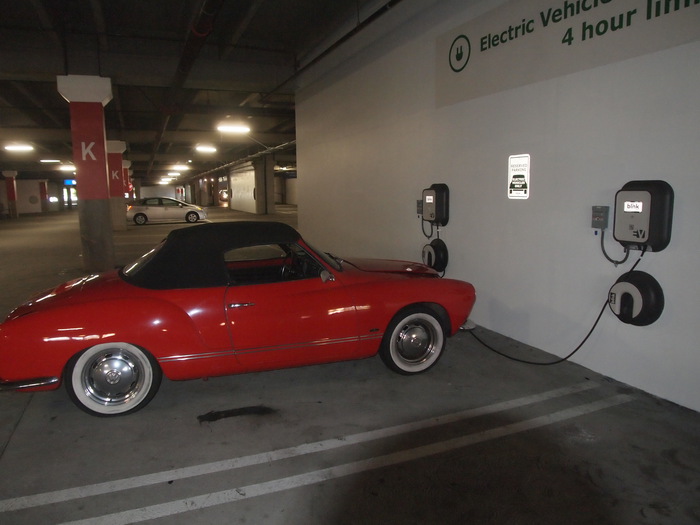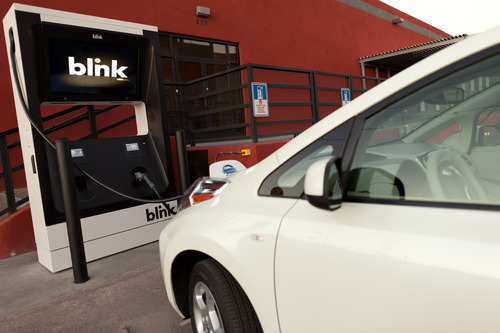A few days ago I asked whether Blink’s recent pricing change for charging services was gouging consumers. That pricing change had some welcome changes, such as switching from charging by the hour to charging by the minute. But the effect has been a drastic increase in the cost of a charging session at a Blink station. I’m seeing repeated complaints about this from EV drivers posting on Facebook, and now there is a petition drive underway asking the CarCharging Group to revert the pricing on Blink charging sessions![]() .
.
Formerly these sessions cost $1 per hour. With a car capable of charging at 6 kilowatts, that translates to a cost of $0.16 per kilowatt-hour. Except Blink has been derating their stations because of overheating problems at the charging cord, so it might have been working out to be $0.25 per kilowatt-hour.
The new rate varies (click on the second link above) and users are now seeing costs around $3 per hour. Yikes.
The petitions notes the same point I just mentioned – a huge percentage fee increase for charging at a Blink station. The author of the petition claims this increase will deter potential electric car drivers, and cause an exodus of users from Blink’s stations.
I suppose that’s what will happen – the company is certainly earning a negative reputation from this action. Rather, the already-negative perception of the Blink network is simply being reaffirmed.
The petition notes, as did I in an earlier post, that the charging network owners must be able to make their profit. Since $0.49 per kilowatt-hour seems to be a fairly common price at charging stations, that makes me wonder if that’s the price level needed by charging networks to sustain the business?
The charging networks obviously have costs beyond the cost of the electricity. That means their price must be high enough above the electricity cost to give them enough to cover their costs and maybe even a bit of profit.
At the same time, the higher the price at the charging station the closer it gets to the cost of gasoline.
A big attraction of electric cars is that, at $0.11 per kilowatt-hour for electricity, the “fuel cost” to drive an electric car is a tiny fraction of the fuel cost for gasoline. But at $0.49 per kilowatt-hour that no longer holds true.
The terms of the petition are to
- Revert the fees to $1 per hour or equivalent
- Maintain the change where it’s calculated on a 1 minute granularity
- Rethink the business model
- Highway design could decrease death and injury risk, if “we” chose smarter designs - March 28, 2015
- GM really did trademark “range anxiety”, only later to abandon that mark - March 25, 2015
- US Government releases new regulations on hydraulic fracturing, that some call “toothless” - March 20, 2015
- Tesla Motors magic pill to solve range anxiety doesn’t quite instill range confidence - March 19, 2015
- Update on Galena IL oil train – 21 cars involved, which were the supposedly safer CP1232 design - March 7, 2015
- Another oil bomb train – why are they shipping crude oil by train? – Symptoms of fossil fuel addiction - March 6, 2015
- Chevron relinquishes fracking in Romania, as part of broader pull-out from Eastern European fracking operations - February 22, 2015
- Answer anti- electric car articles with truth and pride – truth outshines all distortions - February 19, 2015
- Apple taking big risk on developing a car? Please, Apple, don’t go there! - February 16, 2015
- Toyota, Nissan, Honda working on Japanese fuel cell infrastructure for Japanese government - February 12, 2015













